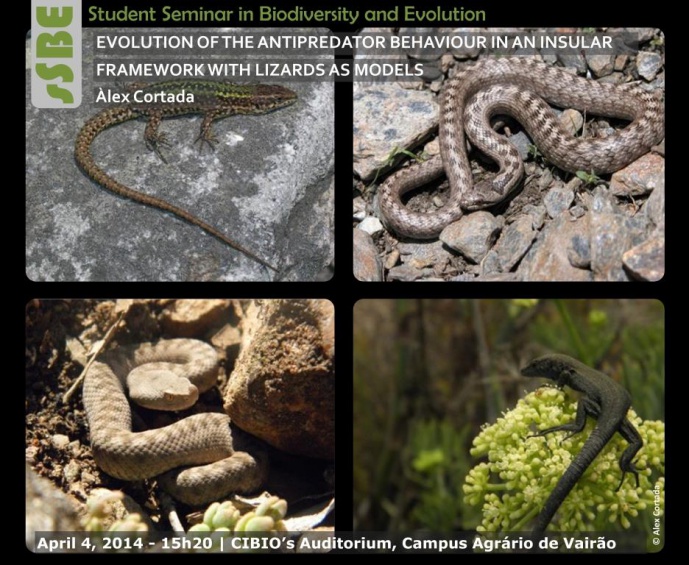EVOLUTION OF THE ANTIPREDATOR BEHAVIOUR IN AN INSULAR FRAMEWORK WITH LIZARDS AS MODELS

STUDENT SEMINAR IN BIODIVERSITY AND EVOLUTION

Predation pressure plays a determinant role on animal populations selecting antipredatory strategies in the putative prey. In the framework of the escape theory, natural selection is expected to favour individuals correctly evaluating both the risk posed by the predator and the costs involved in avoiding predation. Such adaptive pressures may operate at the individual and population level but also along the evolutionary axis, with the appearance of several antipredatory tactics. In a scenario where predation pressure has undergone strong historical shifts (like in islands where predators have disappeared), do potential prey maintain those behaviours? And can they respond with non-adaptive tactics in presence of novel predators? These are some of the questions we expect to answer with the projected work of this MSc thesis, altogether with the suggestions everyone could provide during the talk.
Àlex Cortada graduated in biology in June 2013, by the University of Barcelona. During his last year as an undergraduate student, Àlex visited CIBIO as part of an Eramus internship, and worked on a project that started investigating antipredator behaviour in lizards, under the supervision of Miguel A. Carretero. Àlex is now a first year student in the Master Course in Biodiversity, Genetics and Evolution (Faculty of Sciences, University of Porto). His Master’s project will be a continuation of his undergraduate research studies.
Image credits: Àlex Cortada